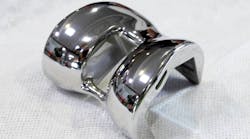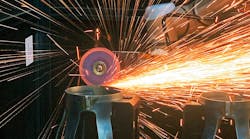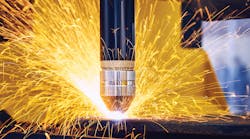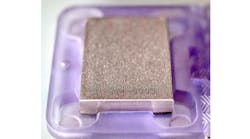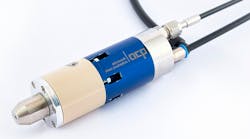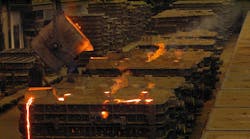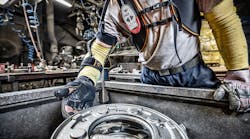Federal-Mogul Corp. reports it has developed a new aluminum piston design that withstands the mechanical and thermal loads produced by heavy-duty engines, making it a more reliable component for diesel engines. This will be important to automotive manufacturers seeking to build vehicles with smaller engines, to achieve lower CO2 emissions and better fuel economy, without compromising the vehicles' power output.
In a diesel engine, combustion takes place in a hollow bowl in the top of the piston. Combustion temperatures may top 750 degrees F (400 degrees C) and pressures may exceed 200 Bar (200 x atmospheric pressure.) Under these combustion conditions, the rim of the piston bowl has an increased failure factor.
Federal-Mogul engineers identified thermal and mechanical failures factors for the piston bowl, and identified free primary silicon particles distributed throughout the aluminum matrix. Aluminum expands eight times more than silicon, so stresses are introduced within the piston every time temperature fluctuates. Also, the repeated mechanical loads could result in fatigue failure from the corners of the silicon particles.
Silicon cannot be eliminated from the aluminum alloy: It delivers low expansion properties and good castability. A previous solution to the problem is fiber-reinforcement, but fiber reinforcements increase manufacturing complexity.
Federal-Mogul’s new DuraBowl design involves pre-machining the cast piston and then re-melting the aluminum-silicon alloy around the rim of the bowl. Rapid cooling follows, which alters the alloy’s microstructure significantly by reducing the size of hardening phases such as silicon particles and intermetallics.
The result is a piston bowl rim which has its first few millimeters significantly strengthened to withstand temperature and pressure, thereby extending engine life four to seven times what may be achieved with a conventional cast piston.
"The strength and efficiency of our solution is that the process is physically simple," stated Frank Doernenburg, Federal-Mogul director of technology, pistons and pins. "The sophistication is in the control of key parameters, which ensure consistent quality. The result is a technologically advanced, high-performing and very cost-competitive product when compared to both fiber-reinforced and steel pistons."

